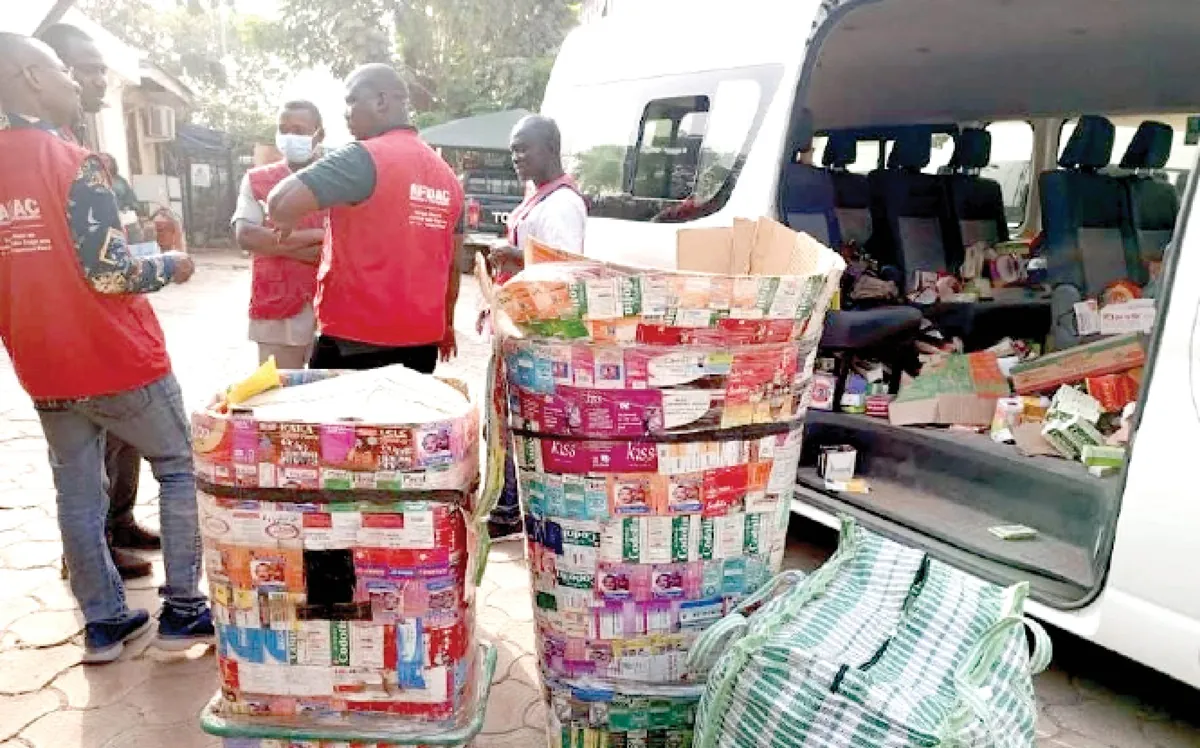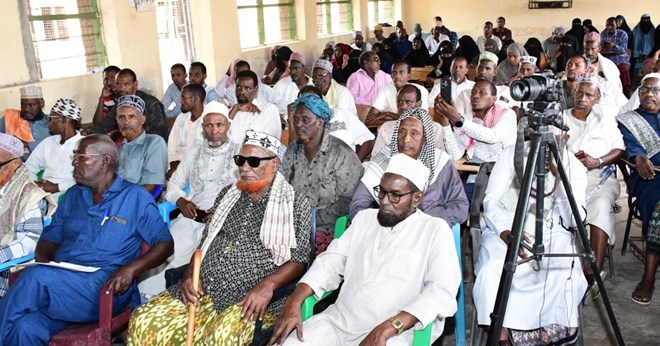Copyright tribuneonlineng

Last month, SUNDAY TRIBUNE explored the trend of self-medication that has become increasingly prevalent among many Nigerians. In this follow-up report, VINCENT KURAUN spoke with medical experts, who raised concerns regarding its potential health risks and complications. Philip Adekunle, a pharmacist, who resides in Ife township area of Osun State, was a well-known figure in the community. He spent most of his days surrounded by shelves lined with vibrant bottles and packets of different medication. His work gives him a strong sense of fulfillment and direction in life, as he helps others through his knowledge of medications and health. However, the weight of his responsibilities and the relentless demands of his profession took a toll on his health. It all started innocently enough. Exhausted from the long hours spent at his pharmacy and overwhelmed by stress, Adekunle began to self-medicate. Initially, it was just an occasional over-the-counter pain reliever to manage his fatigue. But as a few months passed, he noticed the bouts of headache crept in more frequently. He turned to stronger prescription painkillers, rationalising that his knowledge of medications would allow him to handle them responsibly. As time went on, he began mixing various medications, convinced he could create the perfect solution to alleviate his symptoms and maintain his energy levels. He felt invincible, believing his training provided him with the insight needed to navigate the complexities of each medication. What Adekunle didn’t realise was that blending of substances was a perilous gamble. The stress of his job, combined with erratic sleep patterns and a poor diet, began to affect his body in ways he could no longer ignore. Eventually, he noticed a swelling in his legs but quickly attributed it to sitting for long hours at the pharmacy. Deep down, however, fear gnawed at him. Still, he pressed on, increasing dosages and experimenting with new drugs. It wasn’t long before his body began to send more alarming signals. Instead of seeking help from a medical professional, he doubled down on his self-medication, convinced it was the only way to push through. Finally, one fateful morning, Adekunle woke up with a sense of dread hanging heavy in the air. When he looked in the mirror, he barely recognised the haggard reflection staring back at him, dark circles under his eyes and sallow skin. Desperate for answers, he conducted a hurried online search, only to come across something ominous. His symptoms – swelling, fatigue, and nausea – all pointed in one horrifying direction: renal failure. A cold chill ran down his spine as he read. At that point, he became afraid and rushed to the clinic. When the doctor finally called him into the consulting room, the expression on his face changed dramatically. Blood tests revealed severely compromised kidney function, a dire consequence of his reckless self-medication and long-term neglect of his own health. The doctor explained the urgency of the situation, prescribing a regimen to manage his condition, but the weight of the diagnosis pressed heavily on his him. In today’s Nigeria, self-medication has silently become a culture. From antibiotics for coughs to painkillers for every ache, Nigerians increasingly turn to the nearest chemist, herbal concoction, or online recommendation before consulting a qualified doctor. Shedding light on the complexities of the phenomenon, a general medical practitioner, Dr Charles Adeogun, noted that the reasons why anyone would opt to self-medicate are layered, explaining that with the overstretched healthcare system that plagues the nation and the attendant long queues at hospitals, prohibitive consultation fees and a dearth of medical professionals, many Nigerians, especially in rural areas, find themselves without adequate access to care. This medical desert is a breeding ground for the “shortcut mentality,” where seeking cheap, quick relief becomes the norm rather than a red flag. “First, our overstretched healthcare system often means long queues, high consultation fees, and inadequate access to doctors especially in rural communities. Second, poverty fuels a ‘shortcut mentality,’ with people seeking cheap relief over professional care,” Adeogun said. He further explained that the compounding issue is the regulatory landscape, or lack thereof, surrounding pharmacies and patent medicine vendors, who dispense prescription-only medications with little oversight and effectively enabling a culture of self-reliance that is fraught with peril. He also added that people prefer to self-medicate because it is deeply ingrained cultural beliefs surrounding home remedies while many others frequently turn to peer-to-peer medical advice, disregarding the signs that a professional assessment is needed. “Pharmacies and patent medicine vendors frequently sell prescription-only drugs with little regulation, reinforcing the habit. In addition, long-held cultural beliefs in ‘home remedies’ and peer-to-peer medical advice, and the cycle continues unchecked,” he remarked. Echoing this sentiment while speaking with Sunday Tribune, a renowned consultant family physician at Tranquil and Quest Specialist Hospital Lekki in Lagos, Dr Adokiye Berepiki, noted that one of the primary reasons patients self-medicate is the desire to avoid consulting a doctor, often due to financial constraints or the belief that they can accurately diagnose their condition. “Many patients feel they know what ailment they have and prefer to go to a pharmacy to purchase medication themselves,” he explained. He also added that the influence of the internet also plays a significant role, as patients increasingly turn to online resources to diagnose their symptoms without the benefit of a professional medical examination. He, however, warned that self-medication is fraught with risks. “The chances of purchasing the wrong medications are significant,” Dr Adokiye said. “Additionally, adverse drug reactions can occur, which may have serious health implications.” He cited renal failure as a severe complication that has arisen due to self-medication, noting that these complications underscore the importance of proper medical guidance and oversight. Misuse of antibiotics a consultant family physician and medical director at Nathaniel Health Consulting, located in Matogbun, Ogun State, Dr Ademola Orolu, also shared insights with Sunday Tribune regarding the significant public health issue of antibiotic resistance, particularly in relation to self-medication practices. Dr Orolu emphasised that self-medication poses a serious burden on the healthcare system, noting that “antibiotic resistance is a serious burden in Nigeria. Unfortunately, we don’t have data that describes the problem objectively.” He identified self-medication as a key factor contributing to this resistance, stating that, “Self-medication is one of the common causes that influence infectious agents to become resistant to antibiotics.” Corroborating Dr Orolu’s stand, Dr Adeogun stated that the rampant misuse of antibiotics is not just a personal choice but one that poses a public health threat, driving antimicrobial resistance and rendering once-manageable infections life-threatening. He further stated that painkillers can mask symptoms and delay proper diagnoses until it is all too late. Meanwhile, the unregulated consumption of herbal concoctions can also lead to severe organ damage, consequences that are often underestimated until tragedy strikes. He pointed out those self-medication cuts off vital steps that lead to precision in diagnosis, including detailed clinical history taking, physical examination, relevant investigations, and professional opinion or review of the investigation reports. According to him, these crucial steps help nail the diagnosis and institute an appropriate treatment regimen promptly. He stated that any other shortcut amounts to “trial and error.” When asked about the advice he would give to patients regarding antibiotic use without a prescription, Dr. Orolu stated, “Patients are always advised to avoid use of medications without a prescription.” He highlighted a significant challenge, mentioning that “the problem is that there is no support by the regulators to enforce it.” Dr Orolu advised that it is essential for patients to consult with a doctor before using medications for most conditions. He, however, acknowledged that some medications may be exceptions, explaining, “Non-opioid pain-relieving tablets, pain-relieving ointments, anti-malarial medications, and anti-allergy medications may not need prescriptions because of the high prevalence of the respective diseases in the country. This, he said, is to reduce overcrowding of the clinics by individuals who want to get prescriptions for very common complaints.” Similarly, Dr Adokiye highlighted the need for greater awareness and education on the health risks associated with unsupervised medication use, stating that seeking professional medical advice could prevent serious complications and promote better overall health outcomes in the community He acknowledged that while some patients are informed about the potential risks associated with self-medication, many remain unaware. “There is a pressing need for increased awareness regarding the risks of self-medication to prevent adverse health outcomes,” he stressed. Improving access to healthcare services Addressing the question of whether increasing access to healthcare could reduce self-medication, Dr Orolu affirmed that “improving access to healthcare services will reduce self-medication.” He stressed that better accessibility would encourage individuals to seek professional help rather than resorting to self-treatment. In addition to this, Dr Adokiye believed that healthcare providers have a crucial role in educating patients about the risks of self-medication. “We must engage in proactive health education, making sure patients understand the importance of seeking professional guidance, especially when it comes to their health,” he suggested. For individuals contemplating self-medication for common ailments, he emphasised that the importance of consulting with a certified medical doctor, saying “a healthcare professional can provide an accurate diagnosis, recommend necessary investigations and administer appropriate medication.” Preventing inappropriate medication sales On enforcement of regulation that will prevent the inappropriate sale of medications over the counter, Dr Orolu proposed a systematic approach. He said: “Community pharmacies and patent medicine stores should submit the prescription papers for every month to the pharmaceutical representatives that supply the medications. The pharmaceutical reps, in turn, submit the prescription to the regulator, e.g. NAFDAC.” He further recommended that regulators conduct random checks with the doctors who issued the prescriptions to verify their authenticity, stating that this simple approach could significantly help combat self-medication. In terms of collaboration, Dr Orolu indicated that implementing a system requiring doctors to stamps on prescriptions could greatly reduce instances of self-medication. “No pharmacy should dispense some medications without a doctor’s stamp even if a doctor’s name is written on the prescription,” he said. Building on this approach, Dr Adeogun insisted also that solutions require collective will. “The government must take a stand by tightening drug regulations and curbing over-the-counter abuse. Beyond policies, there is an urgent need to expand affordable healthcare, particularly through community clinics and telemedicine initiatives that make consultation accessible to all,” Dr Adeogun said. He furthermore stated that robust public health campaigns are essential, adding that such campaigns must utilise local languages and influencers to resonate with the populace and raise awareness about the risks associated with self-medication. He suggested that “Nigerians must learn that health is an investment, not an expense. Consulting a doctor is not a luxury but a safeguard. If we shift our mindset and policy together, we can curb this silent epidemic before it deepens further.” He concluded by saying, “Self-medication seems convenient today, but its full cost tomorrow may be one we cannot afford.” As the discussion for self-medication continues, it becomes increasingly clear that while it may offer immediate gratification today, the long-term costs could be unmanageable tomorrow. By reevaluating our approach and advocating for systemic changes, Nigeria has the chance to reshape its health narrative before this silent epidemic spirals further out of control. In the end, the path forward lies in embracing a culture of professional care, where knowledge, investment, and health converge for a brighter, healthier future. ALSO READ TOP STORIES FROM NIGERIAN TRIBUNE



